
Silhouette. Image by Nick Verron, who is also partially sighted.
At approximately 18-months-old, I lost the majority of my eyesight due to a blood clot on the brain. While I can distinguish light and dark and discern the outline of objects, I am unable to see detail. So, for example, if a friend were to pass by me I would see an outline and only be aware that it was a friend when they spoke.
I began writing poetry in 2012 and at that time the idea that my visual impairment might impact on the kind of poems I wrote never occurred to me. However, given that several people have commented on my poor vision and how this may impact on my writing, I thought it would form an interesting basis for a post and I am grateful to Sue for agreeing to publish my article.
On Thursday 26 January, I was honoured to appear on Vancouver Co-Op Radio’s World Poetry Reading Series, hosted by Ariadne Sawyer and Neil Ryan. During the show I read several of my poems and entered into a discussion regarding what inspired me to compose them. One poem in particular, “Owl” led to a discussion concerning what impact, if any, my blindness exerts on my writing:
“I have lain awake listening for the owl’s cry.
A note that chills
Thrills
Then does die.
One day
This bird of prey
Will carry my soul away,
Or so the superstitious say.
Mice hide
While I, in my pride
Decide
The owl’s eerie cry
Signifies that I will die.
The bird has no interest in me
So why can I not be free
Of his cry
That to my window nigh
does rise, then, as suddenly, die?”
The above poem is replete with references to listening. “The owl’s eerie cry” … “Why can I not be free of his cry” and “does rise, then, as suddenly, die”.
As a blind person, I rely to a significant degree on my ability to hear. This is particularly important when crossing busy roads as I am unable to discern the outline of cars until they are practically on top of me. This focus on listening leads me to hone in on the sounds of nature, which perhaps helps to explain why “Owl” is full of references to sounds and listening. Having said that, (and as I pointed out during my interview on Vancouver Co-Op Radio), a sighted person lying in the dark (as I was when the note of the owl reached my ears) would (as with me) have been unable to see the bird and would have been aware of the creature’s call in the same manner as I. Having said that, the sighted person could have visualised the owl in his mind (despite his inability to see it at that moment in time) which may have led to the composition of rather a different poem to that written by me.
As pointed out earlier, I do possess limited vision. I can, for example discern the difference between light and dark. Come the night, the little vision I do possess is rendered virtually useless. The capacity to distinguish between dark and light is, I believe exemplified in the below poem entitled “The Dark”:
“Closing my curtain
I shut out the night
And the fireworks
Celebrating something
but precisely what
I am uncertain.
While beyond my drapes
The dark
patiently waits …”.
When observing the scene, which led to the composition of “The Dark”, I was acutely aware of the bangs being produced by fireworks. I was, however also cognisant of the flashes lighting up the dark night. Then, of course I closed my curtain shutting out the night, although the dark remained patiently waiting, on the periphery, as it does for all of us.
Having written the above, I realise that although I was (at the time of observing the scene, which caused me to pen this poem) aware of the flashes emanating from the fireworks, there is, in the poem no reference to this fact (merely a reference to fireworks “celebrating something” which does, I believe indicate that visual stimuli is not as important to me as it is to a sighted person.
Having said the above, many of my readers are unaware that I am visually impaired and only become cognisant of this fact when it is mentioned by me in a post or on those rare occasions when I meet one of them face-to-face. The fact that many readers don’t pick up on my visual impairment perhaps demonstrates that the influence exerted by my blindness on my poetry is not obvious unless the person reading knows that I am blind.
In conclusion, I believe that my poor vision exerts an influence on my verse in that I am very aware of sounds and other non-visual stimuli. Having said that, the fact that many of my readers are unaware of my blindness until they are informed of it by me, indicates that it exerts a subtle rather than an obvious influence on my writing.
Prior to closing, I would like to say a few words regarding how my experience of reading the many excellent blogs out there can be improved. As a visually impaired person it is extremely helpful when people describe images on their blogs/websites. Just having my screen reading software detect an untagged image gives me no information as regards it’s content and my life and that of other access software users would be greatly enriched where bloggers to provide a description of the images appearing on their sites.
Find and follow Kevin
amazon.co.uk amazon.com WordPress blog
Goodreads and Twitter@drewdog2060
 About the author
About the author
Kevin Morris was born in Liverpool. Having lost most of his vision in early childhood, his love of literature began as he listened to the tales read to him by his grandfather. In later years, Braille opened the world of independent reading. Only a tiny proportion of books are available in braille, but Kevin found it amazing to be able to sit with a book on his knee reading for himself. Besides braille he was also a huge consumer of spoken word cassettes, everything from Treasure Island to Wuthering Heights. Modern text-to-speech technology has now opened a wider world of literature to him.
Kevin read history and politics at university and eventually graduated with an MA in political theory.
He began to write seriously in mid 2012, using software that converts speech into text and Braille. He now lives and works in Crystal Palace, London and enjoys walking in green places with his guide dog Trigger, listening to a wide variety of music and socialising with friends.
In this collection of poetry and prose the intimate connections between the natural world and humanity are explored, while a number of pieces are of a humorous nature.
I loved the sheer variety of the pieces in this book – and the lyrical nature of the writing. Most beautiful. Two, in particular, stood out for me: ‘Dark Angel’ and ‘The Great Cycle’. Both evoked the connection we have with the world – though in very different ways, one being a physical bond with the natural world, the other a more inanimate ‘friend’! I thoroughly recommend this exquisite little collection.
Find all Kevin’s books on Amazon

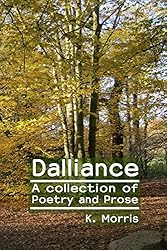
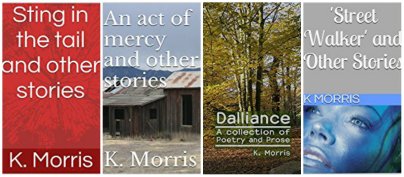



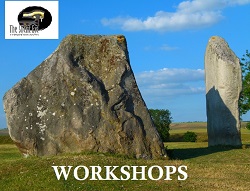



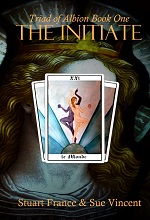


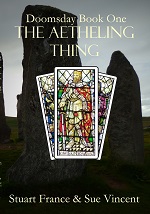
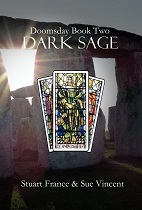
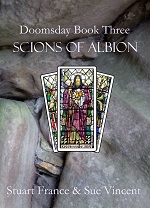
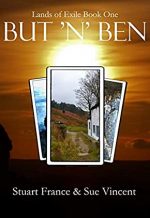






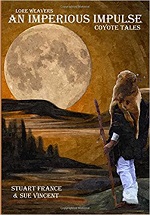


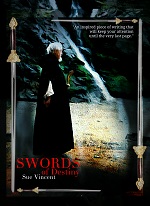

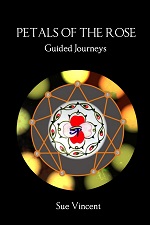

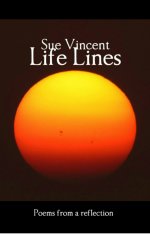
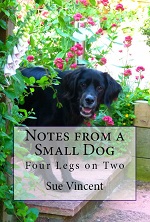



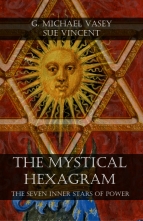

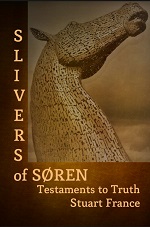


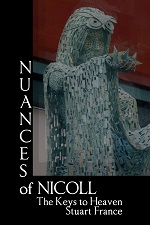


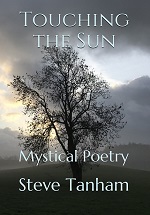

Many thanks Sue for publishing my guest post. Kindest regards, Kevin
LikeLike
Thank you for coming over, Kevin… and you are welcome back any time 🙂
LikeLiked by 1 person
Thank you Sue! Kevin
LikeLiked by 2 people
Reblogged this on newauthoronline and commented:
In this post I discuss to what extent my visual impairment (I am registered blind) impacts on my writing. My thanks to Sue Vincent for kindly hosting my article. Kevin
LikeLiked by 2 people
Kevin, thank you for sharing your beautiful poems and giving me an idea of what it’s like to be visually impaired. Clearly you make the most of your other senses, especially your hearing. I have a physical disability of a different kind, so I know how we compensate for abilities we lose.
LikeLiked by 2 people
Many thanks for your comment Lyn. I am delighted you enjoyed my poems and thank you for the compliment. Yes I think that to some extent at least the loss or diminution of one sense can led to the enhacement of another capability. However this is not always the case, for example there are individuals who are both profoundly deaf and blind. Best, Kevin
LikeLiked by 1 person
Sorry I, of course meant enhancement.
LikeLiked by 1 person
A lovely and interesting post, Kevin. Poetry is often full of sensory detail, and therefore I don’t know if I’d pick up on your lack of sight as a poet. The visual elements might take backstage, but there’s so much beauty in sound, touch, smell, taste, and emotion, and a focus on those senses is immersive in a fresh way. Your poetry is beautiful. Thanks for sharing.
LikeLiked by 2 people
Thank you for your compliment on my poetry, I am delighted you gain pleasure from it. You are right that poetry is about so much more than the visual elemement. As I say in my article, many people dont pick up on my visual impairment unless I either mention it or they run into me face-to-face. Kind regards, Kevin
LikeLiked by 2 people
Thanks, Sue and Keven. I enjoy learning more about Kevin and his poetry, not that I know a lot about it but I do enjoy it sometimes. I’m amazed how well you describe things you cannot see. 🙂 ❤
LikeLiked by 2 people
Thank you Tess. Kindest regards, Kevin
LikeLiked by 1 person
Terrific post Kevin and wonderful examples of your work.. Will also share in the Blogger Daily tonight. Thanks Sue x
LikeLiked by 1 person
Thank you Sally for your kind words and thanks also in advance for the share, which is much appreciated, Kevin
LikeLiked by 2 people
Thanks for shring, Sally x
LikeLiked by 2 people
Pingback: Smorgasbord Blogger Daily – 7th February 2017 – Share buttons, reviews, Crime Settings, Poetry and Octopus! | Smorgasbord – Variety is the spice of life
❤
LikeLiked by 1 person
Reblogged this on Don Massenzio's Blog and commented:
Meet guest author Kevin Morris via Sue Vincent’s blog.
LikeLiked by 2 people
Many thanks for sharing my guest post Don. I really appreciate you doing so. Kind regards, Kevin
LikeLiked by 2 people
My pleasure.
LikeLiked by 2 people
Reblogged this on Viv Drewa – The Owl Lady.
LikeLiked by 1 person